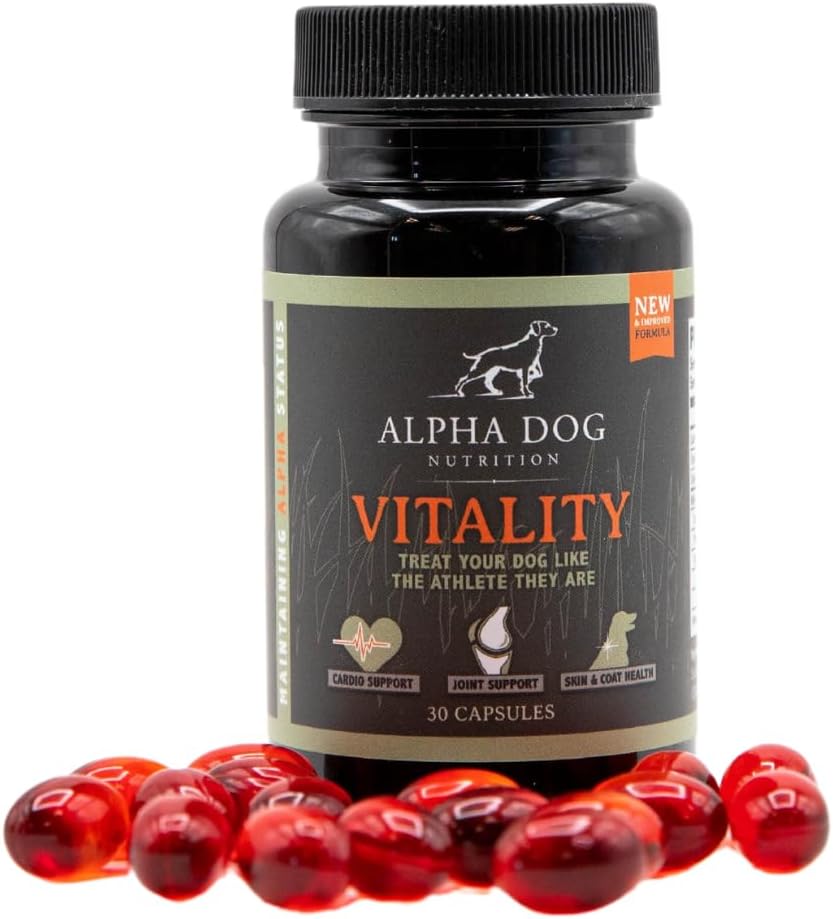Dog sneezing is a common but often concerning issue for pet owners.
While occasional sneezing can be normal, frequent bouts may signal underlying problems that need attention.
Understanding the causes of dog sneezing is crucial for addressing your furry friend’s discomfort effectively.
In this blog, we’ll explore five strategies to help ease your dog’s sneezing and improve their overall well-being.
Let’s dive in!
What Causes Dog Sneezing?
Dog sneezing can be caused by various factors, including allergies to pollen, dust, mold, or certain foods.
Nasal irritants, such as smoke or strong fragrances, can also trigger sneezing.
Infections, like kennel cough or nasal mites, may lead to frequent sneezing, as can foreign objects lodged in the nasal passages.
Understanding these causes can help pet owners take appropriate steps to alleviate their dog’s discomfort.
If your furry friend is sneezing frequently, here are five ways to help ease their discomfort.
1. Consider a Krill Oil Supplement
One effective way to reduce sneezing in dogs is to incorporate a krill oil supplement into their diet.
Rich in omega-3 fatty acids, krill oil can help reduce inflammation and support overall respiratory health.
These fatty acids may also enhance your dog’s immune system, making them less susceptible to allergens and irritants that can trigger sneezing.
My dog’s favorite is Alpha Dog’s new Vitality: Krill Oil for Dogs.
Alpha Dog’s Vitality is a powerful krill oil specifically designed for dogs, offering a range of health benefits.
Formulated to support allergies, it provides relief from itchiness and discomfort while promoting a shiny, healthy coat packed with omega-3 fatty acids.
Regular use can also minimize shedding, keeping your home cleaner and your dog more comfortable.
Additionally, its natural anti-inflammatory properties support joint health, making it an excellent choice for both active and older dogs, all delivered in easy-to-administer softgels.
Simply follow the directions on the back and you’re good to go!
2. Keep the Environment Clean
Maintaining a clean living space is crucial for minimizing allergens that may cause your dog to sneeze.
Regularly vacuum your home, wash your dog’s bedding, and use air purifiers to reduce dust, pollen, and pet dander.
Avoid using strong cleaning products or air fresheners that may irritate your dog’s sensitive nose.
3. Monitor Allergens
Just like humans, dogs can suffer from allergies that lead to sneezing.
Common allergens include pollen, mold, dust mites, and certain foods.
Keep track of when your dog sneezes most frequently and consider consulting your veterinarian for allergy testing.
Identifying specific allergens can help you take steps to avoid exposure.
4. Use Saline Nasal Drops
If your dog is experiencing nasal irritation, saline nasal drops can help soothe their nasal passages.
These drops can provide relief by moisturizing the mucous membranes and flushing out irritants.
Always consult your veterinarian before administering any medication or supplement to ensure it’s safe and appropriate for your dog.
5. Schedule a Veterinary Check-Up
If your dog’s sneezing persists or is accompanied by other symptoms such as nasal discharge, coughing, or lethargy, it’s essential to consult your veterinarian.
They can assess the situation, rule out infections or foreign objects, and recommend appropriate treatments or medications to alleviate your dog’s discomfort.
Ease Your Dog’s Sneezes
While occasional sneezing is normal for dogs, frequent bouts may indicate an underlying issue that needs addressing.
By considering supplements like krill oil, maintaining a clean environment, monitoring allergens, using saline drops, and consulting your veterinarian when necessary, you can help ease your dog’s sneezing and improve their overall well-being.
Your furry friend deserves to be comfortable and happy, so take the steps needed to support their health.
Thank you for reading!
